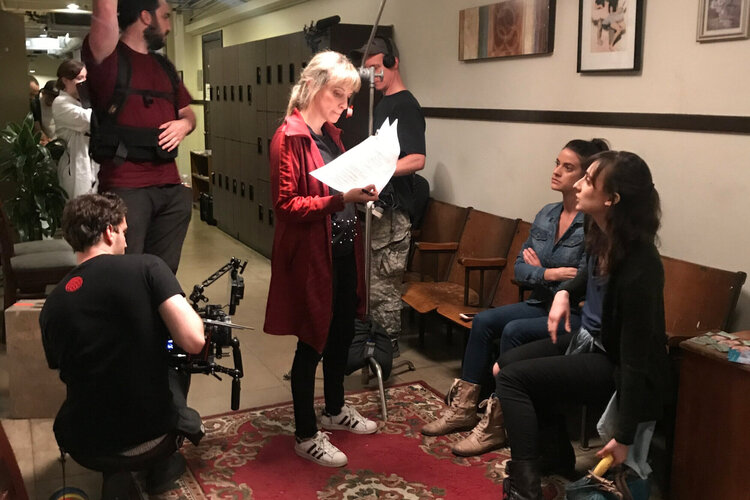Moments before her abortion, a grieving woman seeks the support of her best friend who secretly has her own agenda.

Can you tell us what inspired you to bring this story to life?
The inspiration is twofold: 1) I wanted to de-stigmatize abortion and, 2) I had a recurring fear that I would find out I was pregnant after getting broken up with. I quickly realized that what I actually felt was a lot of shame over my post-breakup feelings and anxieties. Either because my ex called me too emotional and sensitive, or my so-called “friends” did. With nowhere to release these emotions, I bottled them up and felt extremely isolated — which only increased my feelings of shame.
There’s a lack of pro-abortion storylines in Film and TV. It was important to me that that the protagonist is not struggling with whether or not she’ll get an abortion. Her struggle comes from the fact that her friend doesn’t appear to be supporting her through this decision. So it’s a larger commentary on what friendship should look like. Ultimately, I wanted to convey that we ought to spend more time listening than judging.
It’s funny that you mention RomCom happy endings in the film. ‘Mel and Ruby’ does have some sort of a happy ending, but maybe not the one we expected. How important was that for you to get across?
Extremely important! I wanted this to be a love story between two friends and how they learn to lead with empathy rather than judgment or shame. I hope that this metaphor can be expanded out to inspire many relationships — parent/child, romantic partners, stranger to stranger, etc. Shame has been built into our societal systems and it’s having a negative toll on our mental health and our interactions with each other. In my opinion, the best way to counteract that shame is through love and understanding. Mel and Ruby finally open their hearts up to each other. That’s why they’re able to reconcile and achieve a happy ending.
What’s the main takeaway you would like people to leave with after watching this film?
I hope audiences connect with the theme of empathy. This story is specific to two friends, but I hope audiences can expand it out into a larger metaphor. In our relationships — whether that’s with loved ones, acquaintances, or strangers — we must take the person in front of us as they are without shame or judgment. Lead from love and understanding.
This film was very much inspired by my own personal experiences with anxiety and vulnerability. I understand how terrifying it can be to share your authentic self with others, sometimes even with the people who are closest to us. I wanted this film to create a space where people could feel safe sharing their truth. My hope is that audiences feel understood and represented.
Finally, I hope people appreciate this complex, yet ultimately supportive friendship between two women represented on film. That’s something I didn’t see a lot when I was growing up, and I’m so thankful that’s changing in the industry. Authentic representation is essential. It is incredibly harmful when groups are represented as cliches, monoliths, inaccurately, or as the punchline of a joke. I strived for authentic representation when writing this film and I sincerely hope that comes across.



